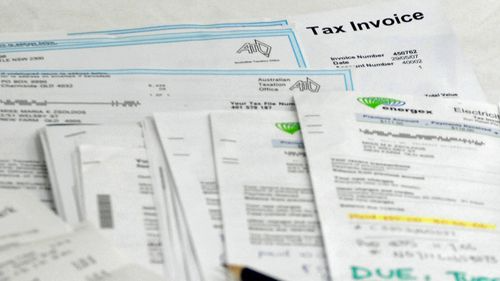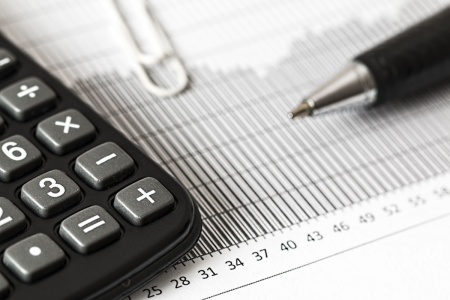Crackdown on landlords! Is your tax return at risk with this new ATO policy?
The Australian Tax Office (ATO) has decided to bring the hammer down on landlords submitting dubious tax returns. With more and more people working from home during these unprecedented times and the rise of home-based businesses and income from short-term rental services like Airbnb or Stayz, it seems the ATO has decided it's time to put an end to this tax fraud.
The ATO's decision comes hot on the heels of an $89.6 million funding boost announced in last week's budget, which is expected to result in an increased Tax Office revenue of $474.9 million over the next five years.
Some of us have had our share of houses, rentals and even the occasional holiday rental or two over the years. Therefore, it's essential to be aware of these changes and ensure that all our tax returns are correctly filed. It’s better to be safe than sorry, dear members.
In the 2019-2020 financial year, there was a tax gap of a staggering $9 billion, with taxpayers paying 94.4% of the total amount theoretically owed to the Commonwealth. Deductions for rental expenses, including those who have incorrectly claimed negative gearing deductions, contributed a sizeable $1.3 billion to this deficit.

Assistant Tax Commissioner Tim Loh has announced that the ATO is cracking down on this issue. 'We encourage rental property owners and their registered tax agents to take extra care this tax time and review their records before lodging their return,' Loh said, according to The Age.
The Assistant Tax Commissioner also provided a handy tip, saying, 'You can only claim interest on a loan used to purchase a rental property to earn rental income—don't forget, if your loan also includes a private expense, such as for a new car or a trip to Bali, you can only claim an interest deduction for the portion relating to producing your rental income.'
Loh was especially keen to remind Australians that working from home does not excuse them from the proper filing of their tax returns. He pointed out that the ATO's method of calculating work-from-home expenses has changed and advised against using the 'copy and paste' tax return method.
For individuals who derive income from rental properties, it's important to understand the implications for tax purposes. According to MySmartMove, Claiming deductions on your tax return can serve as an effective strategy to minimise the amount of income tax you owe. Landlords, who are considered to be operating a business, have access to a variety of deductions that can significantly reduce their tax burden.

One of the most substantial deductions available to landlords is mortgage interest. This cost is directly associated with generating rental income and can be claimed as a deductible expense. Furthermore, landlords can deduct expenses related to repairs and maintenance, advertising costs, property-related taxes, and utility bills such as water, gas, electricity, and rates.
To ensure that you maximise your tax benefits as a rental property owner, it is advisable to work with an experienced accountant. They can guide you through the process of identifying and claiming the appropriate rental deductions each year. By leveraging these deductions effectively, you can not only reduce your tax liability but also save a significant amount of money.
Considering the potential impact of technology on job markets, it is essential to adopt a proactive approach to financial matters. By adhering to Loh's advice and remaining diligent with your tax obligations as a landlord, you can navigate the changing landscape while safeguarding your financial wellbeing.
SDC Members, it's essential to stay informed about these potential changes to the tax process, particularly for those of us managing rental properties or earning income through short-term rental sites. Staying aware and acting accordingly will certainly help us avoid any unexpected run-ins with the ATO while also allowing us to sleep better at night.

So, remember to double-check all your income sources, deductions, and expenses before submitting your tax returns this year, and always consult with a registered tax agent if you're unsure about anything. Let's face it, folks—none of us wants to be at the wrong end of the ATO's crackdown!
The ATO's decision comes hot on the heels of an $89.6 million funding boost announced in last week's budget, which is expected to result in an increased Tax Office revenue of $474.9 million over the next five years.
Some of us have had our share of houses, rentals and even the occasional holiday rental or two over the years. Therefore, it's essential to be aware of these changes and ensure that all our tax returns are correctly filed. It’s better to be safe than sorry, dear members.
In the 2019-2020 financial year, there was a tax gap of a staggering $9 billion, with taxpayers paying 94.4% of the total amount theoretically owed to the Commonwealth. Deductions for rental expenses, including those who have incorrectly claimed negative gearing deductions, contributed a sizeable $1.3 billion to this deficit.

The ATO is determined to take strong action against landlords who submit fraudulent tax returns. Source: 9news.com.au
Assistant Tax Commissioner Tim Loh has announced that the ATO is cracking down on this issue. 'We encourage rental property owners and their registered tax agents to take extra care this tax time and review their records before lodging their return,' Loh said, according to The Age.
The Assistant Tax Commissioner also provided a handy tip, saying, 'You can only claim interest on a loan used to purchase a rental property to earn rental income—don't forget, if your loan also includes a private expense, such as for a new car or a trip to Bali, you can only claim an interest deduction for the portion relating to producing your rental income.'
Loh was especially keen to remind Australians that working from home does not excuse them from the proper filing of their tax returns. He pointed out that the ATO's method of calculating work-from-home expenses has changed and advised against using the 'copy and paste' tax return method.
Common Tax Deductions for Landlords
In today's rapidly advancing technological landscape, it is crucial to stay vigilant about financial matters while considering the potential impact of artificial intelligence on job markets. As we navigate this changing landscape, it is wise to heed Loh's advice and ensure that our financial affairs remain transparent and lawful.For individuals who derive income from rental properties, it's important to understand the implications for tax purposes. According to MySmartMove, Claiming deductions on your tax return can serve as an effective strategy to minimise the amount of income tax you owe. Landlords, who are considered to be operating a business, have access to a variety of deductions that can significantly reduce their tax burden.

One of the most substantial deductions available to landlords is mortgage interest. This cost is directly associated with generating rental income and can be claimed as a deductible expense. Furthermore, landlords can deduct expenses related to repairs and maintenance, advertising costs, property-related taxes, and utility bills such as water, gas, electricity, and rates.
To ensure that you maximise your tax benefits as a rental property owner, it is advisable to work with an experienced accountant. They can guide you through the process of identifying and claiming the appropriate rental deductions each year. By leveraging these deductions effectively, you can not only reduce your tax liability but also save a significant amount of money.
Considering the potential impact of technology on job markets, it is essential to adopt a proactive approach to financial matters. By adhering to Loh's advice and remaining diligent with your tax obligations as a landlord, you can navigate the changing landscape while safeguarding your financial wellbeing.
SDC Members, it's essential to stay informed about these potential changes to the tax process, particularly for those of us managing rental properties or earning income through short-term rental sites. Staying aware and acting accordingly will certainly help us avoid any unexpected run-ins with the ATO while also allowing us to sleep better at night.
Key Takeaways
- The ATO is cracking down on landlords submitting dodgy tax returns, as well as those working from home and earning income from short-term rental sites like Airbnb or Stayz.
- An $89.6 million funding boost to the ATO is expected to increase Tax Office receipts by $474.9 million over five years.
- The tax gap was $9 billion in the 2019-2020 financial year, with deductions for rental expenses contributing $1.3 billion to the gap.
- Assistant Tax Commissioner Tim Loh encourages rental property owners and their registered tax agents to review their records before lodging their return and warns against the 'copy and paste' tax return method.
Last edited by a moderator:







